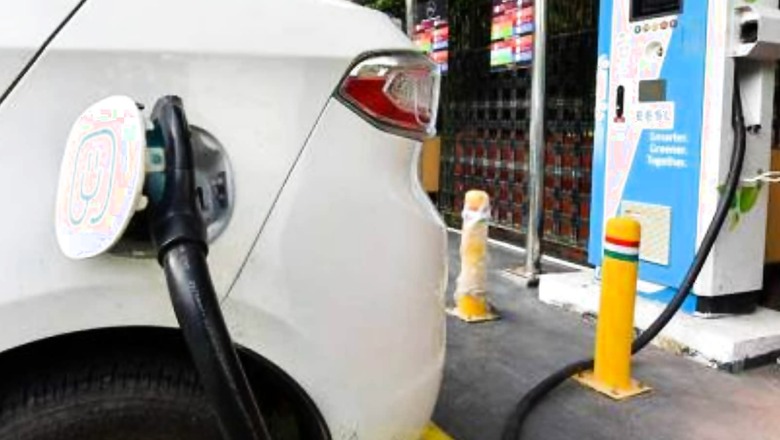
views
The Ministry of Road Transport & Highways (MoRTH) has extended the deadline for mandatory implementation of recently notified electric vehicle battery testing standards, following requests from the industry.
The first phase implementation must be completed by December 1, 2022, while the second phase implementation must begin on or before March 31, 2023.
MoRTH stated: “For the OEMs to be better equipped to comply/implement the provisions prescribed under the standards AIS-156 and AIS-038 (Rev 2), the Ministry has decided to implement Amendment 3 of the said AIS, in two phases.”
The ministry earlier announced more stringent battery safety regulations for EVs would take effect from October 1. This notification came on September 1, meaning that the industry had less than a month to prepare for the big change.
An expert committee was established by the ministry and it was led by Tata Narsingh Rao, Director of Hyderabad’s ARCI, in response to recent reports of fire incidents involving electric two-wheelers in various parts of the country.
Based on the committee report’s recommendations, the ministry issued amendments to requirements for motor vehicles with less than four wheels running on electric power, as well as amendments to specific requirements for four-wheeler EVs carrying passengers and goods.
According to the ministry, these amendments include additional safety requirements for battery cells, battery management systems (BMS), onboard chargers, battery pack design, and thermal propagation due to internal cell short circuits leading to fire among others.
At that time, News18 spoke to a few industry leaders who explained their understanding of the amendments and highlighted some key challenges.
Now, after the ministry has extended the deadline, Akshay Singhal, founder & CEO of Log9 Materials, said that this extension decision is well appreciated from the industry perspective.
He believes that the latest move will ensure adequate diligence is done before the revived generation of batteries arrives to the Indian consumers.
Singhal said: “As the new safety standards necessitate revisiting the battery technology ground-up to ensure all the needful checks and balances are in place, the adequate time required is of the essence and cannot be compromised upon. Hence, the deadline extension was much called for to do justice towards the Government’s intent with which the standards have been introduced in the first place.”
Kalyan C Korimerla, Managing Director, Etrio, also applauded the extension decision.
“This move will ensure that Indian battery makers can be thorough in redesigning the batteries and certification agencies have ample time to gear up for increased testing mandates,” he said. “At the same time, vehicle OEMs now have enough time to introduce vehicles using these new batteries into the market in a safe manner and to get their vehicles re-certified.”
Visakh Sasikumar, co-founder and CEO of Fyn, told News18 that these new standards provide for cell-level safety checks, check for charger level & thermal propagation inside the battery packs that leads to stricter and extensive testing.
“This leads to stricter and extensive testing, hence OEMs would require more time to implement these changes for testing and design of their new EVs in production,” he said. “Rushing this testing process, with the new changes will lead to inefficient EV productions, causing problems in the future. Hence the extension allows EV manufacturers to have ample time to cater to these changes and bring better and safer EVs to the Indian roads.”
Read all the Latest Auto News and Breaking News here

















Comments
0 comment